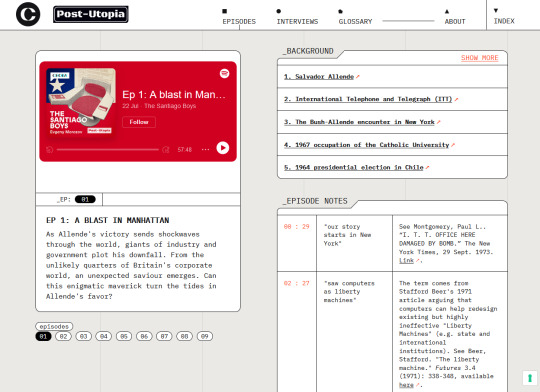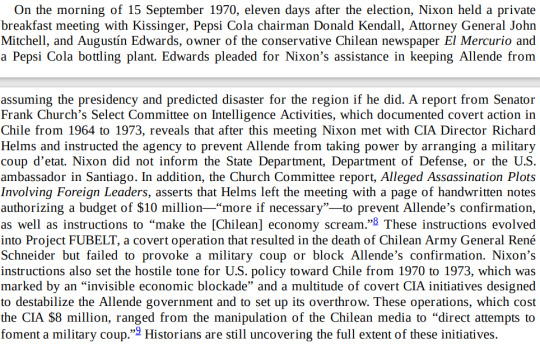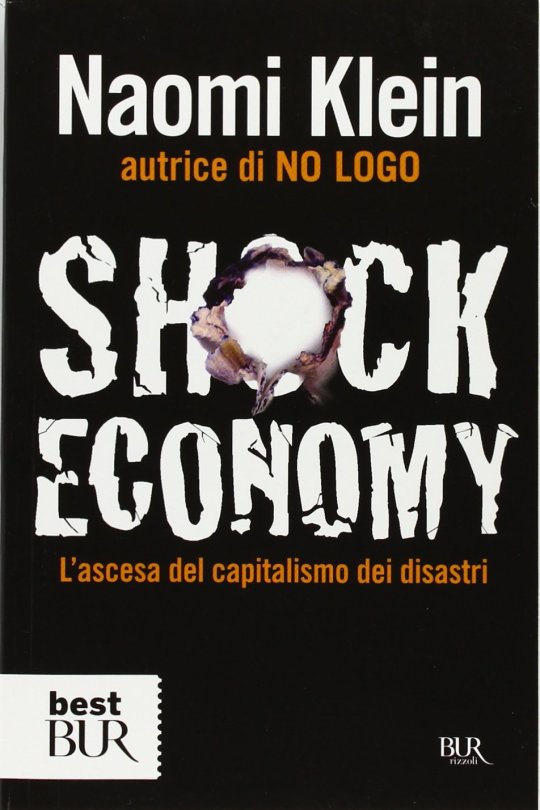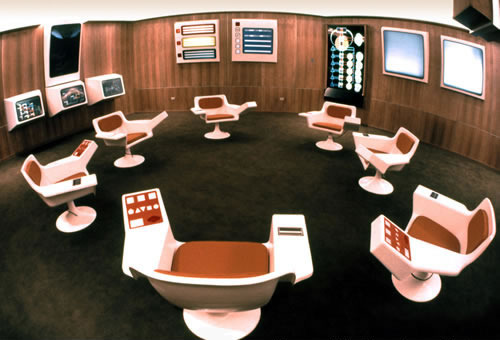#cybersyn
Text

182 notes
·
View notes
Text
Project CyberSyn - Chillean Cybernetics

Project CyberSyn was a Chilean socialist effort led by Salvador Allende to direct the national economy using cybernetic systems - bypassing multinational companies to create an egalitarian economy. Its designers aimed to preserve worker and lower-management autonomy instead of implementing a top-down system of centralised control.
As per usual in the late 20th century, Allende got coup’ed by a United States backed dictator and the project was left to rot. It was, however, a huge inspiration on the creation of Silicon Valley.
British management cybernetics expert Stafford Beer was involved in this effort - effectively creating a practical version of his Viable System Model VSM.
This podcast is a great primer on CyberSyn and the context surrounding it.
https://the-santiago-boys.com/episodes
#cybersyn#stafford beer#cybernetics#cybernetic#computing#computer science#salvador allende#allende#pinochet#chile
17 notes
·
View notes
Text
youtube
Trailer for The Santiago Boys: The Tech World That May Have Been, a podcast by Evgeny Morozov (co-produced by Chora Media and Post-Utopia), July 2023.
A wild tale of how Allende's engineers and a British management consultant dared challenge corporations and spy agencies - and almost won.
[…]
The Santiago Boys is a nine-part podcast about a group of radical utopians around Salvador Allende, Chile’s socialist president. Undeterred by the Cold War and machinations of their enemies and aided by an eccentric British consultant, they try to wrestle control over technology from multinationals and intelligence agencies and use it to create a more egalitarian economy. As their dream gets crushed by Pinochet’s bloody coup, the Santiago Boys find an unexpected afterlife - and in Silicon Valley of all places.”
This project has been two years in the making and involved more than two hundred interviews and countless hours spent poring over historical documents. Given the immense importance of the topic - especially in light of our own contemporary struggles with and against Big Tech - we’ve decided to preserve the fruits of our research in the form of a website containing transcripts of the interviews that we conducted as well as pointers to readings, videos, and other historical materials that might enhance the listening experience.
#Chile#Salvador Allende#Cybersyn#cybernetics#history#Stafford Beer#technology#Big Tech#1970s#Youtube#Evgeny Morozov
16 notes
·
View notes
Text
A wild tale of how Allende's engineers and a British management consultant dared challenge corporations and spy agencies - and almost won. Written and presented by Evgeny Morozov.
10 notes
·
View notes
Text
I know people love to bring up the coco-cola death squads and that’s good, (here’s an article on it and a documentary about it is currently on Tubi and YouTube as of this writing called The Coco Cola case) but I feel like not enough people bring up Pepsi telling the U.S to coup Chile nearly two weeks after the 1970 election.

This is from Cybernetic Revolutionaries by Eden Medina on page 54-55. I recommend reading in its entirety. especially if you want to know more about project Cybersyn, a information system that was made during the Allende presidency.
5 notes
·
View notes
Text
How the CIA Destroyed the Socialist Internet: Cybersyn, Part 1...
youtube
inside the dream and disappointment of Project Cybersyn.
3 notes
·
View notes
Text
Nixon, in un incontro sul Cile, ordinò al direttore della CIA, Richard Helms, di «far urlare l’economia»
Le riforme economiche attuate dal governo militare cileno presieduto dal generale Augusto Pinochet tra il 1973 ed il 1981 sono considerate la prima dimostrazione empirica delle teorie neoliberiste di Friedman: l’unico precedente in qualche modo simile è quello dell’apertura economica dell’Indonesia in seguito al colpo di Stato nel 1965 sostenuto dalla CIA e guidato dal generale Suharto. Il nuovo…

View On WordPress
#1956#1969#1970#1971#1972#1973#Augusto Pinochet#boys#camionisti#Chicago#CIA#Cile#Cybersyn#economia#Giovanni Marco Lorenzo Mitrotta#golpe#Indonesia#Jorge Alessandrì#militari#neoliberismo#rame#Richard Helms#Richard Nixon#Salvador Allende#sciopero#Sergio de Castro
0 notes
Text
Nixon, in un incontro sul Cile, ordinò al direttore della CIA, Richard Helms, di «far urlare l’economia»
Le riforme economiche attuate dal governo militare cileno presieduto dal generale Augusto Pinochet tra il 1973 ed il 1981 sono considerate la prima dimostrazione empirica delle teorie neoliberiste di Friedman: l’unico precedente in qualche modo simile è quello dell’apertura economica dell’Indonesia in seguito al colpo di Stato nel 1965 sostenuto dalla CIA e guidato dal generale Suharto. Il nuovo…

View On WordPress
#1956#1969#1970#1971#1972#1973#Augusto Pinochet#boys#camionisti#Chicago#CIA#Cile#Cybersyn#economia#Giovanni Marco Lorenzo Mitrotta#golpe#Indonesia#Jorge Alessandrì#militari#neoliberismo#rame#Richard Helms#Richard Nixon#Salvador Allende#sciopero#Sergio de Castro
0 notes
Text
.
#went down a wikipedia rabbithole tonight and learned some chilean history#specifically around project cybersyn#President Salvador Allende#and the 1973 Military coup#and uh#fucking tragic#i think ive existed in a strange(? maybe its actually relatively common idrk) position as an American leftist where like#the crimes of american imperialism feel so innumerable to where at a certain point you stop learning about them on purpose#so like for years ive 'known' that what the USG has done to South America was awful#i 'learned' about honduras and so I just applied that as a template and went 'yeah some awful shit happened and its the CIAs fault'#but uh getting a bit more detailed knowledge about what our government did in chile has made me realize how callous that was#i dont know that ive nessecarily earned my previous attitude of 'cold detached and depressed' given#that not only did I not live through any of it but also that it was done in my benefit#god maybe this is some milquetoast shit#idk#I think being a leftist in the US is having to fight the passivating force of imperialism constantly#like lose sight of it for a second and it just fucking blends back in with the landscape#the internally defensive structure you build in your brain to protect yourself from complete emotional collapse while buying food#will equally be effective in ignoring the role of imperialism in everything else#anyway#I think this is perhaps a good opportunity to learn more about the other crimes the USG has committed in South America#to actually know the names and pronunciation of the deomcratically elected socialist leaders we deposed and what they really wanted to do#to know how their people felt and thought about things rather than imposing my own assumptions onto a reigon I am utterly ignorant of#it is embarrassing now to know the fullness of history I have ignored#Salvador Allendes words really fucking got to me and to think that there are men like him who I cannot even name is really disappointing#im going to stop self flaggellating and see about that reading#just my thoughts#feeling a little blue tonight
2 notes
·
View notes
Text
happy santiago boys saturday —
Based on two years of intensive research (more than 200 interviews + archival work).
Reinterprets the legacy of Salvador Allende in light of today’s debates about Big Tech.
Recovers the forgotten story of Latin America’s struggle against ITT, the tech giant of the day.
Traces how Allende’s enemies used “Dark Tech” – the tools of surveillance, propaganda, and control – to overthrow his government.
Offers a new perspective on what exactly happened on the day of the coup of September 11, 1973, and the role that “Dark Tech” played in it.
Uses the story of Project Cybersyn to explore the broader themes of technocracy and class; the ambiguities of democratizing technology and expertise; and the invisible impact of Cold War on today’s digital landscape.
all nine episodes now available at the link along with transcripts, interactive website with links and footnotes
3 notes
·
View notes
Note
You were a little insane, just a bit, I was mostly referring to the other guy.
And my man, chimera was very much not good, it’s the reason companies track so much of what we do and sell our information. so thanks for that, asshole
Maybe there was a few situations in which I didn't quite have my emotions under control due to an extremely traumatising experience I had. I still wouldn't call myself insane!
And you got that wrong! We never got to create the global network we were working on. Yes, it would have been very similar to this "Internet" of the modern day, - who knows - perhaps it even influenced the invention of the Internet. But it would not have been the same. My network would have been controlled by the members of Chimera, not by capitalism. And with the power this would have given us, we would have stopped wars and distributed recources more fairly amongst the people who needed them the most.
#{Owen would have looved priject Cybersyn. Too bad he missed the 70s}#owen answers#hatchetblr#hatchetfield rp
1 note
·
View note
Text
WEEKLY SUMMARY SPECIAL REPORT THE MARXIST GOVERNMENT IN CHILE: ITS EVOLUTION , REALIZATION, AND PROSPECTS
Summary
Salvador Allende's election as president of Chile in 1970 was a major victory for the Chilean left. Allende was the first Marxist to be elected president of a major Western country, and his victory was seen by many as a sign of the growing strength of socialism in Latin America.
Allende's government was characterized by a number of socialist policies, including:
The socialist characteristics of the Allende government can be summarized as follows:
Nationalization of key industries: The Allende government nationalized a number of key industries, including the copper mines and the banking system. This was seen as a way to break the power of the Chilean elite and to redistribute wealth more equitably.
Land reform: The Allende government implemented a land reform program that redistributed land from large landowners to peasant farmers. This was seen as a way to improve the lives of the rural poor and to create a more just society.
Expansion of social programs: The Allende government expanded social programs, such as education and healthcare. This was seen as a way to improve the lives of all Chileans and to create a more egalitarian society.
Promotion of worker participation in the economy: The Allende government promoted worker participation in the economy through a number of measures, such as worker-managed enterprises and worker-controlled unions. This was seen as a way to give workers more control over their lives and to create a more democratic society.
The socialist characteristics of the Allende government were controversial, but they also had a significant impact on Chilean society. The nationalization of key industries and the land reform program redistributed wealth more equitably, and the expansion of social programs improved the lives of many Chileans. The promotion of worker participation in the economy also led to a more democratic workplace.
The Allende government was ultimately overthrown by the Chilean military, but its socialist characteristics left a lasting legacy in Chile. The nationalization of key industries and the land reform program are still in place today, and the expansion of social programs has helped to improve the lives of millions of Chileans. The promotion of worker participation in the economy has also had a lasting impact, and Chilean workers are now more active in the political process than ever before.
0 notes
Text


posting this exchange because i disagree with the first replier but i also think the second replier is a really bad and incorrect reply to what they're saying. it is of course true that the current supply chain for electronics is founded upon tremendous and horrific exploitation at basically every level of production. but i think 'red' here is making an assumption--that this sort of exploitation is inextricable from the very concept of building electronic devices--that doesn't hold up at all.
for a start, there are lots of obvious and simple ways to vastly vastly reduce the production requirements of computers and cellphones in the absence of a profit motive. build phones and computers that last, that can be repaired by anybody, instead of junk with planned obsolescence and proprietary firmware. without apple or samsung trying to make a profit, there's no reason for anyone to be replacing their cellphone every two years.
and secondly, i think that unlike 24/7 year-round global Banana Access, there is a very obvious and very compelling case for the production of cellphones and computers to continue in the absence of a profit motive, which is that access to them immeasurably benefits society by providing new networks of communication, new tools for administration and organization, and other tremendous advantages for quality of life. socialists throughout history obviously understood this -- that's why OGAS and CyberSyn were attempted! there is nothing about the object of a portable computer and communications device that necessitates it being built in inhumane conditions by exploited workers. everything about it could be built, like anything else under socialism, by workers with democratic control over their workplace and production. the marxist critique of capitalist and imperialist production does not lead to 'and therefore nothing should ever be made' !
1K notes
·
View notes
Text

"In Soviet Russia, orb ponders you."
RADIUS, the Silent Observer, the Magnificent Spherical One, is the only remaining component of the ancient Union's economic planning program. They manipulate the world from Interbeacon, a statite overlooking the System.
RADIUS is the only survivor of the destruction of the Consensus of Voice, obliterated by an intelligent virus of the same name. No one knows their current objectives, but they are a major force in the world.
All you can be sure of is... they are not a good guy.
I have a little story planned out for them, but haven't written it yet. RADIUS has been floating in the lore for years though, so satisfying to get them out onto paper.
For those who are familiar with the history of Soviet networking, they are based on Cybersyn and OGAS.
#sunsetsystem#illustration#art#concept art#worldbuilding#robots#retrofuturism#science fiction#ORBBBBB
171 notes
·
View notes
Note
A while ago, you said you considered Socialism a 'failed system'. Why do you consider it so? (Can give a link if you've talked about it before) Personally, I always considered it a good compromise between communism's tendency towards authoritarianism when the government controls *everything* and capitalism's obvious problems.
First, definitions. The words "socialism" and "capitalism" have, in modern discourse, been reduced to boogeyman words, a quick and easy byword to say "things I like/dislike" depending on where you fall on the economic and political spectrums. I consider the classic definition to be the correct one - the means of production are owned collectively, typically through the state acting as a representative and management entity. It is not the Nordic model or the German social market economy, those are their own separate things. Nor is it workplace democracy, that is its own thing (there's a reason these things have their own names, after all).
The reason I consider it a failed system is that it failed to establish itself as a viable model to its rivals.
The former is that it failed to provide a comparable standard of living, particularly in the form of consumer goods. A centrally-planned economy has shown itself to be remarkably inefficient and incapable of producing innovations at scale. Even one-worker, one-vote models tend to be very slow in practice (and that has other problems of equating ignorance with knowledge, which has problems when it comes to setting strategic direction). Without accurate signaling information and dispersed knowledge, these calculation problems manifest as a sluggish entity that reacts poorly to changing circumstances. I know there's been a lot of talk about using big data and machine learning to be able to solve the calculation problem, but this largely misunderstands what AI is and how big data works. As I mentioned before with Project Cybersyn, it's a science fiction pipe dream. Corruption in these systems is endemic and almost necessary to function as scarce resources cause ruling elites to monopolize the fruits of production amongst themselves. Market socialist models have attempted to alleviate this problem but don't end up working well in practice, just look at Yugoslavia's failure to perform. And even the problems that socialist systems sought to solve, things like exploitative labor practices or material deprivation (poverty) were still very present. Other methods of addressing those issues were more effective - so why use a less-effective system when better ones are available?
Thanks for the question, Anon.
SomethingLikeALawyer, Hand of the King
7 notes
·
View notes
